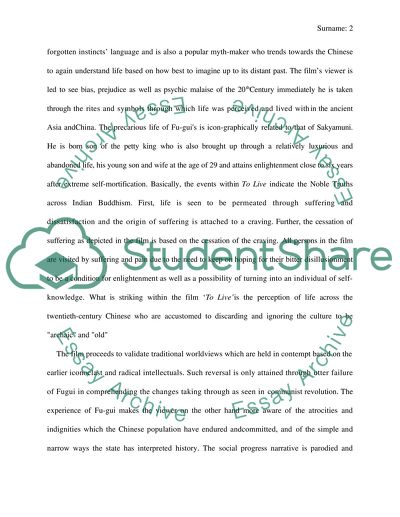Cite this document
(“To live Movie Review Example | Topics and Well Written Essays - 1250 words”, n.d.)
Retrieved from https://studentshare.org/education/1498283-to-live
Retrieved from https://studentshare.org/education/1498283-to-live
(To Live Movie Review Example | Topics and Well Written Essays - 1250 Words)
https://studentshare.org/education/1498283-to-live.
https://studentshare.org/education/1498283-to-live.
“To Live Movie Review Example | Topics and Well Written Essays - 1250 Words”, n.d. https://studentshare.org/education/1498283-to-live.


